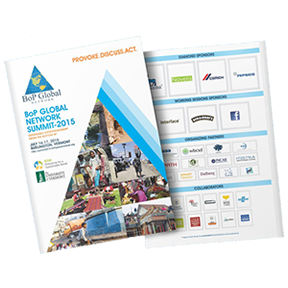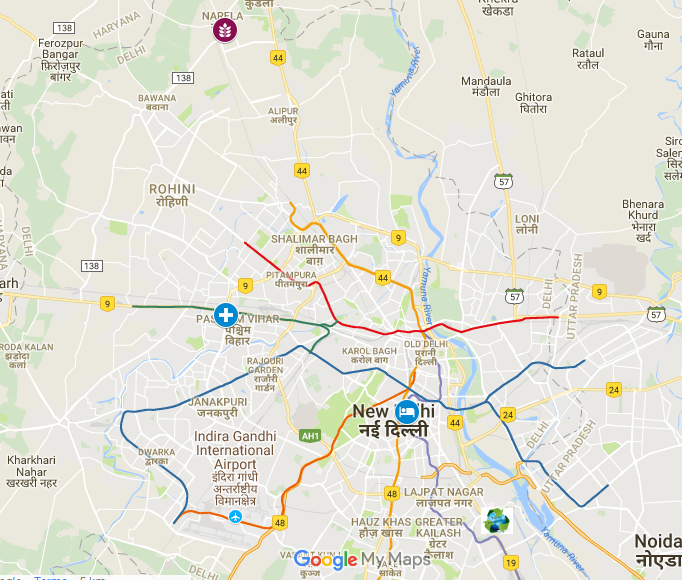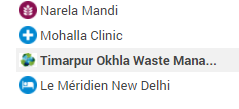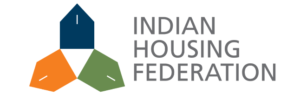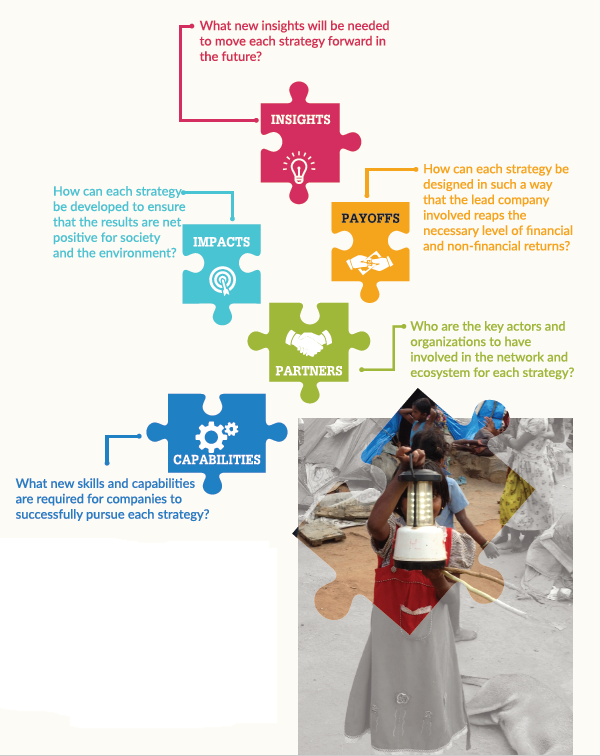
The 2018 BoP Global Network Summit will be focused around three emerging strategies to more effectively reach the Base of the Pyramid:
- → Beyond Environmental Degradation: Toward BoP Circular Economy Strategies
- → Beyond Pipelines: Toward BoP Platform Strategies
- → Beyond Selling to the Poor: Toward BoP Market Engagement Strategies
PAYOFF: How can the strategy be designed in a way that the stakeholders reap the necessary financial and non – financial returns?
PARTNERS: Who are the key actors and organizations to have involved in the network and ecosystem for this strategy?
CAPABILITIES: What new skills and capabilities are required for companies to successfully pursue this strategy?
IMPACT: How can this strategy be developed to ensure that the results are net positive for society and the environment?
INSIGHT: What new insights will be needed to move this strategy forward in the future?
The 2018 Summit will include a field visit to BoP initiatives to experience first-hand some of the leading edge BoP business experiments in India. The field visits will serve to stimulate discussion and action during the Summit itself.
FIELD EXPERIENCE – April 18, 2018 (Optional. Limited seats).
| Time | Venue |
| 10:30AM | Mohalla Clinic |
| 12:00PM | |
| 01:00PM | Timarpur Okhla Waste Management Company Ltd. |
Beyond Environmental Degradation: Toward BoP Circular Economy Strategies
Day 1 – April 19: 11:00 am
SESSION 1: Technologies for Smart Cities and Wards
SESSION 2: Circular Economy in Action
SESSION 3: Sustainability Challenges to various Businesses in Sanitation Value Chain
SESSION 4: New Strategies for Building BoP Ecosystems: Setting the Research Agenda
SESSION 5: Creating Change Agents for Sustainable Business
BOOK PREVIEW: The Green Leap to an Inclusive Economy
SESSION 1
 Technologies for Smart Cities and Wards
Technologies for Smart Cities and Wards
Anchor: Valluri Technology Accelerators
Focus Area(s): PARTNERS, IMPACT, INSIGHT
The smart city policy in India currently covers 100 cities across the country. The budget allotted for this large project is close to USD 7.5 Billion and is distributed across multiple development areas such as Environmental Monitoring, Water, Waste, Transportation, E-Governance, urban modelling and redevelopment.
Since its inception, the smart city initiative in India has been off to a slow start. The current model of implementation requires the development of an entire city under a single contract. These large contracts have, naturally, been difficult to implement. An alternative approach to the current process of awarding smart city projects can be through the implementation of technologies on a converged platform at a ward level.
Through this converged approach, smaller sections of urban areas can be targeted. The concept of a Smart Ward involves a comprehensive technology implementation across a 5 – 10 sq. kilometer region in an urban area. This model of engagement will allow for lower capital costs and will allow for less risk for local governments and associated stakeholders. For a country like India therefore, a decentralized approach like this can speed up the way technology is implemented in cities. Governments can engage with private entities, public sector bodies and citizen stakeholders much more efficiently by providing targeted solution that are far more efficient at addressing local issues at a fraction of the cost incurred through the current process.
Through this workshop, VTA aims to bring together potential stakeholders from various sectors to contribute towards addressing the challenges faced in the “Urban Rejuvenation” market. The workshop will look to provide a holistic perspective for the participants regarding the adoption and implementation of smart city technologies at a localized level.
SESSION 2
![]() Circular Economy in Action
Circular Economy in Action
Anchor: Saahas Zero Waste
Focus Area(s): PAYOFF, PARTNERS, CAPABILITIES
Most countries including India have legislation to regulate waste management. The rules emphasize on resource recovery through decentralised waste management thereby creating a circular economy.
Extended Producer Responsibility (EPR) is a key mechanism to enforce producers and brand owner to set up reverse logistics network across the country.
What we have therefore are national and local policies, regulations and good intent. As yet, there is little done to transform intent to implementation so that there is a tangible shift towards building a circular economy. In a circular economy where 90% of all waste should go into resource recovery including closed loop recycling, new businesses need to emerge.
Saahas Zero Waste is currently in the midst of identifying such opportunities and businesses, especially those that include and improve the conditions of the informal sector. These opportunities create new markets, new careers, new manufacturing processes, new technologies, and reduce dependence on virgin materials. They not only solve an environmental problem but also address pressing social problem of dignified jobs for the BOP population. This can also be a platform for young and senior professionals looking for alternative careers that create social impact.
This workshop is aimed at having Industry, law makers, activists, recyclers and new age business and social enterprises to discuss how we can implement circular economy solutions to create value across stakeholders. There would be focussed group discussions around following themes:
- Policy and Compliance
- Challenges and Opportunities faced by Producers and Recyclers
- New age organisations driving Circular Economy
- Livelihood generation and Skill Building
SESSION 3
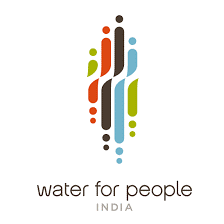 Sustainability Challenges to various Businesses in Sanitation Value Chain
Sustainability Challenges to various Businesses in Sanitation Value Chain
Anchor: Water for People
Focus Area(s): PAYOFF, PARTNERS, IMPACT
Sanitation challenges are not only associated to making India Open defecation free but also while developing sustainable sanitation infrastructure for the toilet uses in urban areas. The urban areas, metros and small towns are known to have differently laid out housing colonies for the different economic stratas of population. The sanitation infrastructure challenges for these different housing colonies or clusters arise from different business models (social or commercial) applied by responsible stakeholders. The differentiated business models in the sanitation value challenges can be observed in the clusters like (i) very high density slums where municipalities set up community toilets or temporary portable toilets (ii) High density low income colonies in which small houses are built having inadequate sized septic tanks (iii) Medium density middle income colonies in which waste water from septic tank is directly discharged into drains (iv) small towns which are now growing at a faster rate than the metros do not have infrastructure of sewer networks or treatment plants.
It is is a growing realization that sanitation value chain and the business models do need a combination of appropriate technology, appropiately designed toilets, awareness about health risks , appropriate disposal of faecal waste, treatment of waste water and other processes. As access to toilets increases, the need for safe and environment friendly disposal of human waste increases and faecal sludge management (FSM) becomes significant. Reports on major urban cities and towns in India have cited low processing capacities of only 12000 million litres per day (32 per cent) while the total sewage generated is about 38000 million litres per day (MLD). It therefore becomes essential that the sanitation based businesses would require market insights , design innovations , gain access to resources and influence policies to create enabling ecosystem. The stakeholders need to discuss and converge on the business processes and models that remove the risk from polluting solid waste and water to the environment, towards zero pollution
SESSION 4
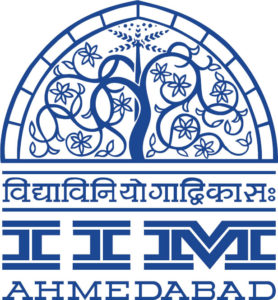 New Strategies for Building BoP Ecosystems: Setting the Research Agenda
New Strategies for Building BoP Ecosystems: Setting the Research Agenda
Anchor: Anand Kumar Jaiswal – IIM Ahmedabad
Focus Area(s): IMPACT, INSIGHT
Since the Bottom of the Pyramid (BoP) concept was first introduced by Prahalad and Hart in 2002, it has evolved into a holistic strategy for sustainable development. Fifteen years later the BoP concept continues attracting interest of both academia and industry. However, the debate has moved from whether BoP is good for the poor and society at large to how to leverage the idea maximally for co-creating value. The debate has also moved from devising affordable products and services as market entry strategies for BoP markets to creating market centric sustainable business models, engineering innovations and developing entrepreneurial approach to serve BoP markets. Instead of imposing external solutions, the focus is now on working closely with all stakeholders, more so with billions of people in different parts of the world to create local solutions.
Scholars play a critical role and can provide thought leadership in developing sustainable solutions and business models that fit the needs of industry. The underlying idea behind the research consortium is to create a platform for academic scholars to come together, discuss and debate current state of knowledge of BoP and identify research topics to advance the field.
In this track, participants would be organized in small groups around certain research themes on the BoP such as generating new research ideas, selecting research design and approach (conceptual, qualitative and quantitative), challenges of doing data collections and executing research.
SESSION 5
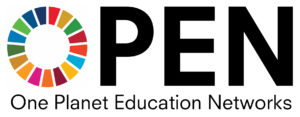 Creating Change Agents for Sustainable Business
Creating Change Agents for Sustainable Business
Anchor: One Planet Education Networks (OPEN)
Focus Area(s): PARTNERS, IMPACT, CAPABILITIES
The UN’s Global Goals (“SDGs”) have set a challenging framework that 192 countries have committed to delivering on, including many countries where effective BoP strategies are vitally important to future development.
Whilst some businesses, especially a prominent handful of large multinationals, are showing statesmanship-like leadership in responding to sustainability issues, overall business awareness of sustainability is very low. As such, the business sector’s response to the challenges and opportunities that sustainability presents has been correspondingly slow.
Businesses of all scales – from micro- to multinational – need entrepreneurial owners, managers and leaders (“change agents”) to successfully navigate and exploit these sustainability challenges and opportunities. This is particularly the case in BoP contexts worldwide, where sustainability issues are often front and centre.
This workshop will explore what it takes to be a successful change agent in BoP contexts and the role(s) that change agents are/could/should be taking to help build BoP ecosystems. It will also consider where the gaps in support for change agents are, and how these could be overcome.
Beyond Pipelines: Toward BoP Platform Strategies
Day 1: April 19 – 3:30pm
SESSION 9: Scaling BoP Innovations and Startups for Success
SESSION 10: Challenges and Successes of Measuring & Managing Inclusive Business Impact
SESSION 6
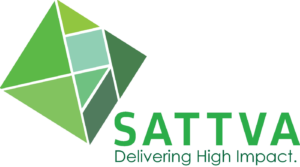 The JAM Platform: How can we leverage digital financial inclusion to disruptively enhance the livelihoods and life quality of BOP communities?
The JAM Platform: How can we leverage digital financial inclusion to disruptively enhance the livelihoods and life quality of BOP communities?
Anchor: Sattva
Focus Area(s): PAYOFF, PARTNERS, IMPACT, INSIGHT
The Indian government’s JAM initiative – Jan DhanYojana that has provided banking access to over 300 million people in India and growing, Aadhar, that has brought in digital identity for more than 99% of the Indian population, and Mobile access through telecom networks, that reaches over 1 billion people, provides potential to transform the way benefits are transferred, economic opportunity, job creation & financial empowerment to the BoP. JAM and associated initiatives are bringing together tech companies, banks, e-commerce and digital payment companies, grassroots last-mile delivery organizations, NBFCs, MFIs, small finance banks, and the government administrative machinery for schemes, to integrate at scale. JAM can be a transformational model that can be scaled across Asia, and the Indian government is already in talks with other Asian governments for transfer of knowledge and know-how. Sattva has been working on livelihood initiatives empowered by digital financial inclusion, and is also conducting deep research into mapping the current needs and future potential for making consumers at the BoP go cashless through digital and enhance their economic and social prospects.
SESSION 7
 Future of Skills: How Collaborative Impact Can be Used as a Platform to Build Consensus on the Future of Work and Tackling India’s Employability Crisis.
Future of Skills: How Collaborative Impact Can be Used as a Platform to Build Consensus on the Future of Work and Tackling India’s Employability Crisis.
Anchor: Sattva
Focus Area(s): PARTNERS, CAPABILITIES, INSIGHT
It is estimated that 12M people join the workforce every year in India but less than 40% are employable by the industry due to lack of necessary skills. Beyond this jobs and skills crisis, the advent of the Fourth Industrial Revolution characterised with rising automation and smart machines, is changing the nature of work. It is said that 6 out of 10 jobs of 2025 do not currently exist today. The skill sets that are expected by the market are evolving with a greater focus on portable cognitive and softer skills as compared to domain expertise.
The focus of this session would be “Collaborative Impact: Way Forward for the Future of Skills.” The session would lay the foundation for a holistic, multi-stakeholder approach towards getting skilled for tomorrow. This session will be anchored to the Future Forward Skills Mission and moderated by Tata Trusts.
The session will revolve around the following key areas:
- Building consensus on changing landscape: How can corporates come together and share insights on the direction in which the labour demands are changing as well as nature of work? What do these changes mean for the future of skills? Where do organisations predict a demand-supply gap and what can they pre-emptively do to bridge that gap and prevent information asymmetry?
- Capacity building needed to evolve skilling ecosystem: How can the current stagnating skill development ecosystem adapt to the changing landscape? How can the industry partner to push the ecosystem towards moving beyond traditional outcome metrics and effect disruptive, catalytic change?
- Acceptance & widespread adoption: How do we work together to ensure that the changing skill requirements of the workforce are adopted across sectors? How can the thought-leadership of a few permeate through the ecosystem to effect widespread change to traditional skilling and hiring?
SESSION 9
 Scaling BoP Innovations and Startups for Success
Scaling BoP Innovations and Startups for Success
Anchor: Social Ventures Foundation
Focus Area(s): PAYOFF, PARTNERS, IMPACT
The Social Ventures Foundation (SVF) is a non-profit organization focused on identifying businesses and startups which have products, services and/or job programs throughout the world that sustainably lift the livelihoods of the poor. The SVF promotes these enterprises through its bi-monthly newsletter, and its awards presentations at its annual Summit. The SVF is focused on facilitating investments in as many of these businesses as possible to help them scale in order to reach millions of the world’s poor or to help them partner with larger corporate entities to accomplish the same mission.
This session will focus on:
- How to identify a promising initiative in the R+D phase focused on a BoP need and transition it to a pre commercial concept with proof of concept.
- How to take a pre commercial proof of concept and bundle or package it as a sustainable product, service or venture that will lift the livelihoods of the poor.
- How to commercialize and scale the product, service or venture through investment, strategic partnership and or micro franchising
SESSION 10
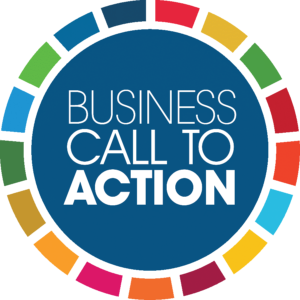 Challenges and successes of measuring & managing inclusive business impact
Challenges and successes of measuring & managing inclusive business impact
Anchor: Business Calls to Action
Focus Area(s): , IMPACT, INSIGHT
BCtA provides customized impact measurement support to inclusive businesses. To date, we’ve supported companies in agriculture, education, energy, health, and housing sectors globally, ranging from social enterprises to multinationals. Companies have been supported in data collection using mobile technology to enhance product and service development, improve marketing, increase operational efficiency and improve their communication with external stakeholders. This session will share experiences from selected BCtA member companies collecting and using impact data for their decision making. The session will seek to engage participants in a discussion on the challenges, drivers and elements of success for measuring and managing impact with an SDG focus. Outputs from the session will also inform BCtA’s online Impact Measurement Lab – an online tool indented to support a greater number of companies on this effort.
Beyond Selling to the Poor: Toward BoP Market Engagement Strategies
Day 2: April 20 – 11:00am
SESSION 11: Banks,Telcos, SHS Distributors: PAYGO As Pivot To Customer Identity?
SESSION 12: Integrating Women Livelihoods with Markets
SESSION 13: Improving Lives of Women and Children by Addressing Malnutrition
SESSION 14: Precision Agriculture for Small Farmers
 Banks,Telcos, SHS Distributors: PAYGO As Pivot To Customer Identity?
Banks,Telcos, SHS Distributors: PAYGO As Pivot To Customer Identity?
Anchor: Hystra
Focus Area(s): PAYOFF, PARTNERS, IMPACT, INSIGHT
This session, anchored by Hystra, will be a follow up to the previous day’s session anchored by Sattva, ‘A platform integrating identity, mobile access and financial inclusion to transform development for millions at the BoP’. It will consider the issue from the applied case and perspective of a specific industry, pay-as-you-go solar home systems (PAYGO SHS).
Since the early 2010s, PAYGO business models for SHS have been growing rapidly (e.g. $160m funding raised in 2015). Enabling customers to buy durable goods on credit is meeting enthusiastic demand. Sector leaders such as M-Kopa in East Africa, Lumos in Nigeria, or Simpa Networks in India, have enabled hundreds of thousands of rural people to access solar electricity. The benefits of SHS have been widely documented (comfort and quality, savings over kerosene, environmental benefits, etc.)
For customers, going for PAYGO is yet not only about buying an SHS. All the data collected throughout the customer journey (credit vetting, digital payments, interactions with customer service, etc.) is enabling SHS distributors, banks and telcos to collaborate in building and using enriched and accurate customer identities:
- SHS distributors are using customer data to offer tailored products/services add-ons, to improve their portfolio management strategies, or simply to generate revenues from selling data to partners.
- Banks are reaching new low-income rural markets, building credit ratings on previously unbanked households, and creating new risk profiles.
- Telco operators are converting customers to digital payments, a powerful source of data which can be added to existing records (customer profiles, airtime history).
This could become a powerful tool to accelerate the provision of beneficial products and services to low-income populations. However, positive outcomes will need some conditions to be met:
- Successful cooperation in distribution: Banks and telcos are large organizations with ingrained distribution methods and customer handling processes: how to make these processes fit with the agile mindset of young and small SHS distributors? Specifically, what are the bottlenecks and best practices re: customer profiling?
- Fair value sharing: How to share the value created between customers, distributors and partners? Should the government play a role in regulating prices? How to do so while the value proposition of PAYGO is oftentimes a bundle of energy provision, services, and credit? How to define a fair price between customer baseline (e.g. rural families pay ~$0.20 for a phone charge, roughly equivalent to $40/kWh) and the price of public services (e.g. grid tariffs below $0.30 CFA/kWh in most countries)?
- Ethical handling of data: For most PAYGO SHS distributors and their investors, the expected future cash flows from customer data is at the core of their business model. But how to make sure that it will be handled ethically? Between distributors and partners, who owns what? When should the government step in?
SESSION 12
Integrating Women Livelihoods with Markets
Anchor: Sattva
Focus Area(s): CAPABILITIES, IMPACT, INSIGHT
India has one of the lowest women participation rates in the workforce. At the same time, agriculture is being radically altered by the fact that women increasingly form over 75% of the agricultural workforce, yet women are invisible in the agricultural growth story of India. At the same time, less than 20% of women are able to contribute to non-farm sectors, with persistent inequality in training, technology, information and incomes. Transforming the gender livelihood prospects in India would mean encouraging women to play strategic roles of producers, aggregators and entrepreneurs across the value chain, while enabling them through access to credit and other productivity enhancing technologies and information. The key component is to establish market linkages and connect women to markets for them to gain profitably from their contributions. And to co-create this with them all along the way.
Sattva has been working on women livelihood initiatives for over 5 years now, in various parts of India, South Asia and Africa, and would be able to bring in relevant experts and practitioners to curate the topic of integrating women with mainstream markets in an equitable and profitable manner.
SESSION 13
Improving Lives of Women and Children by Addressing Malnutrition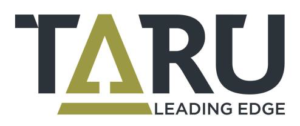
Anchor: TARU, Leading Edge
Focus Area(s): PARTNERS, IMPACT
India has the highest level of public investment in food and nutrition security of all countries through its public funded programs and has the right to food and nutrition in its constitution. Despite policy and political will, investments and nearly 10 fold increase in GDP since 1991, more than one third of the world’s malnourished children live in India. 38.4% of children under the age of 5 are stunted. 58 % children between 6-59 months, 53% women 15- 49 years and 22.7% men 15-49 years old are anaemic. 20.7% women and 18.6% men are obese and overweight. India runs the risk of an impending epidemic of obesity, diabetes and other non-communicable diseases related to poor nutrition. Micronutrient deficiencies, which are commonly known as deficiencies of vitamins and minerals below healthy thresholds, affect all the income groups across all states. There have been multiple initiatives such as Integrated Child Development Scheme (ICDS), mid-day meal program and Targeted Public Distribution System (TPDS) from the Government to address the nutritional challenge, but the impact has not been notable. The Government of India is on a mission to make India malnutrition free by 2022 (75th anniversary of India’s independence). The country has prioritised actions in high burden districts and is committed to establish National Nutrition Mission; a sustainable effort towards preventing and reducing under nutrition and other related problems in India. In order to realise the vision and optimise impact, it needs multi-stakeholder efforts to fight malnutrition. Engaging socially responsible businesses offers multiple opportunities. Food fortification, health care management, improvement in agriculture, production and processing of affordable and safe nutritious foods are among major opportunities where businesses can play a major role in pursuing public interest agendas. NGOs and civil society organization can play a major role in creating awareness, introducing nutritional changes in diet and helping in delivering the appropriate solutions to the BoP consumers. A coordinated approach, convergent actions and multi-stakeholder platforms in public space can provide sustainable solutions to address malnutrition and micronutrient deficiencies.
SESSION 14
Precision Agriculture for Small Farmers![]()
![]()
Anchor: Endeva, Ekutir
Focus Area(s): PAYOFF, PARTNERS, IMPACT, INSIGHT
Precision Agriculture allows farmers to manage their fields for maximum output by using data (e.g. on weather, soil and diseases) and digitized farming equipment to apply the right inputs at the right time. Precision agriculture could boost the productivity of smallholder farmers, who usually lack access to information and have few means to afford inputs. With precision agriculture, they could increase yields and maximize the payback of their investments. In addition, transparency on production processes could also improve the market value of crops.
eKutir already serves more than 70.000 farmers in India and elsewhere with Information services and market linkages, creating opportunity for 500 micro entrepreneurs through its intermediary model. The session will explore how to expand the service offering based on eKutir’s platform by bringing in other relevant data services, financial services, inputs and machinery. Ultimately, such a platform can de-risk small farmers’ business and create transparency, efficiency and productivity along the whole value chain. The session continues a process from the www.ii2030.com event in Berlin in October 2017 and invites new partners to come on board.
![]() Leveraging Innovations in Tech and Finance to Scale-up Models that can Solve the Most Pressing Health Issues at the BoP
Leveraging Innovations in Tech and Finance to Scale-up Models that can Solve the Most Pressing Health Issues at the BoP
Anchor: Essilor
Focus Area(s): PAYOFF, PARTNERS, IMPACT
Global health and well-being is one of the most important sustainable development goals, with each year around $40 billion being spent by governments and aid agencies alone to tackle the most pressing health issues affecting those at the Base of the Pyramid. In addition to having a direct impact on quality of lives, these health issues have a significant socio-economic impact on the global economy as well. For example, it is estimated that the productivity loss due to the 2.5 Billion people at the BoP who suffer from poor vision is a staggering Int. $272 Billion per year. Often for BoP communities, primary health care challenges are as basic as lack of simple diagnostic tools and access to a primary health care worker.
Inclusive business models providing last-mile service delivery solutions solve part of the problem but in order to tackle pervasive global health issues effectively and at scale, more needs to be done. It is necessary to leverage advances made in mobile-app based diagnostic tools, and innovations in developmental finance such as social bonds and pay-for-performance contracts to not only provide new, cost effective solutions to deliver health care but in the process also unlock private capital necessary to overcome resource barriers.
For addressing the vision care needs of the 2.5 Billion at the BoP companies like Essilor are already pioneering inclusive business models addressing issues of access and affordability. But leveraging innovations in technology (e.g. refraction on a mobile app) and developmental finance (e.g. social impact bonds for vision) can truly scale-up and fast-track the impact many folds. This working group will aim to bring together innovators in tech, developmental finance and inclusive business to identify how the three can work together to solve the most pressing health issues at the BoP.
 Business Model Innovation – Sharing Lessons on Inclusive Value-Chains in the Agriculture Sector
Business Model Innovation – Sharing Lessons on Inclusive Value-Chains in the Agriculture SectorAnchor: Inclusive Business Action Network (IBAN)
Focus Area(s): PAYOFF, PARTNERS, INSIGHTAt the 3rd BoP Global Network Summit 2018, the Inclusive Business Action Network (iBAN) organizes a closed workshop for inclusive agribusiness leaders on 20 April 2018.In two sessions, the workshop focusses on topics that significantly shape the development and implementation of IB models:Session 1: Digitalization
 Did you know that…
Did you know that…
- …. more than 325 000 farmers in West African use Ignitia’s weather forecasting app, increasing income up to 80%?
- …. One Acre Fund cut payment losses and collection costs by over 80% by digitalizing loan repayments for farmers?
- …. Mahindra Tractors transferred the concept of Uber to farm machines, thus enabling farmers to rent tractors via the mobile based app Trringo?
Few players are seizing these opportunities and are leading! Many are watching and wondering what this means to their businesses. As the sector braces for exciting possibilities, we invite you to an immersive, peer learning experience! The session will explore opportunities how inclusive business ventures can leverage digital technologies for scale.
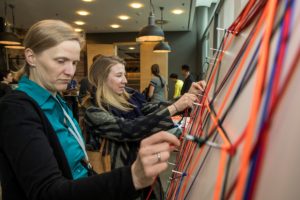 Session 2: Financing
Session 2: Financing
In the session on financing, we will discuss:
- How to negotiate fair stakes?
- How to agree upon impact?
- How to deal with investor impatience?
- How to deal with paper work and presentation overload?
- How to best leverage investors’ contacts and networks?
Impact investors are usually well organized in global, regional and national associations. They share learnings with like-minded peers to build common standards and practices necessary for the industry to thrive and scale. Meanwhile, the voice of the investees is often missing. This session will change this by bringing their voices to the discussion and by encouraging exchange between them.
For any further questions, please contact Markus Dietrich, Director Asia iBAN.
By invitation only
BOOK PREVIEW
Day 1: April 19 – 2:00pm
The Green Leap to an Inclusive Economy – The new book of the BoP Global Network –
In The Green Leap to an Inclusive Economy is the new book edited by Stuart L. Hart and Fernando Casado Caneque with the contribution of the BoP Global Network labs, addressing these two biggest issues facing humanity and the planet today: Inequality and Environmental Degradation. They present the new design thinking required for a more inclusive and sustainable economy which respects both people and planet.
This book offers insightful case studies from the BoP Global Network labs that showcase the challenges and opportunities of base of the pyramid venturing in different geographical and cultural contexts, as well as providing a detailed description of the tools that have been proven to enhance the innovation of business models to address the issues.
Panelists: Daniel Buchbinder, Markus Dietrich, Jack Sim
Moderator: Fernando Casado
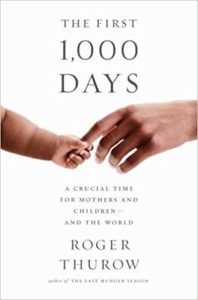 BOOK LAUNCH
BOOK LAUNCH
Day 2: April 20 – 2:30pm
The First 1,000 Days: A Crucial Time for Mothers and Children – And the World
Through compelling stories of new mothers and babies in Uganda, India, Guatemala, and Chicago, award-winning journalist and anti-hunger advocate Roger Thurow explores the promise of—and confounding challenges to—a transformative worldwide initiative to end early childhood malnutrition.



